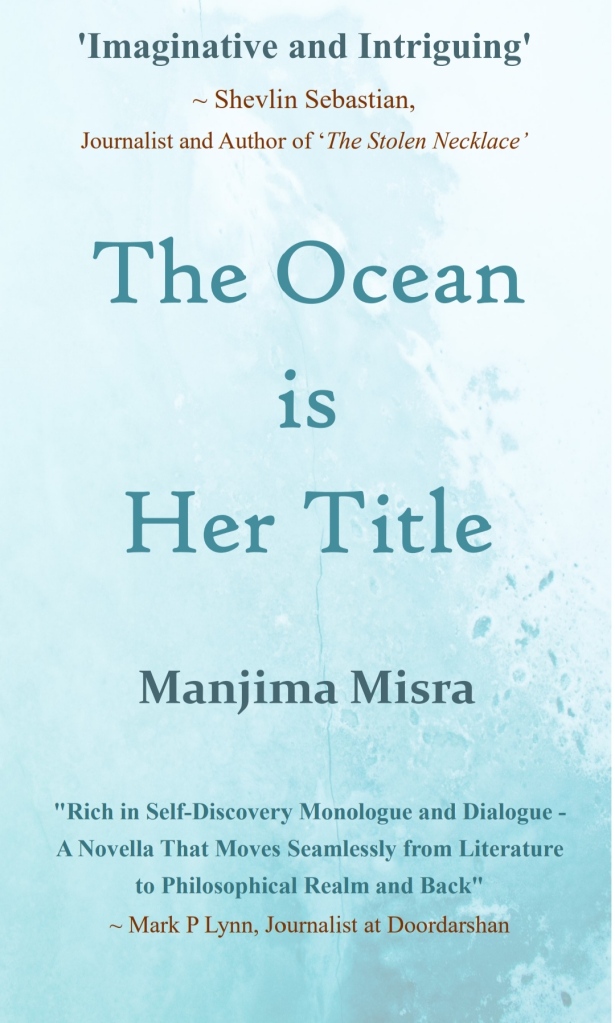By Devraj Singh Kalsi
Ten years after selling the ancestral house, Anoop returned to his roots – to the small town he was eager to leave, to grow big and flourish where a plethora of opportunities lived. Finding a new building constructed on what was once his inherited land, he stood outside the entrance in awe, pulled out a postcard-size photograph from his shirt pocket, and tried to match the similarities between the past and the present.
Gazing intently to observe the elements that stood firm despite the ravages of time and circumstances, the heavy iron-gate that guarded the grand entrance to the bungalow was the solitary link to his forgotten past. With a fresh coat of paint of a different shade, it looked ready to embrace visitors with the same warmth that it exuded earlier. As he pushed it gently to enter the premises, the creaking noise that used to irritate him was music to his ears now, capable of bringing a wistful smile to his face that conveyed a lot about his changed mindset.
Trudging along the cobbled path leading to the porch, Anoop decided to thank Girish, the present owner of the property, for showing the rare spirit of preservation. There were several similarities adding up, carving the image of a liberal owner who did not exercise the freedom to overhaul everything for a complete makeover. The jackfruit tree close to the boundary wall and the alcove with the tulsi plant stood green and abundant as it did in the past, offering ample evidence that he maintained a fine balance between legacy and modernity.
Anoop was sequencing the thoughts he would share as soon as he was welcomed in. A dilemma prevailed over whether he should take time to unfold his actual purpose or quickly get to the agenda that had ferried him here. The tension was palpable as he pressed the doorbell with the arrogance of a feudal landlord who was still not ready to wake up and accept the new reality.
His roller-coaster journey was a classic example of the story of an unexpected downfall, followed by a meteoric rise in no time. He felt it was his responsibility to erase the era of his decline because the lost ground was recovered. He made it a mission to acquire everything he had lost during the lean phase. With confidence in divine support, he knew a miracle was waiting to happen, to turn the tide in his favour and bestow upon him the status of ownership of this property once again.
Not quite confident of an enthusiastic welcome, Anoop had come alone to strike a deal that did not carry the support or consent of his family though they shadowed him wherever he went. This would be the first occasion he would get full credit from his wife and son if he achieved success in what appeared to be a challenging task: buying back the house he had sold.
The question that remained unanswered was whether Girish would agree to sell. Anoop was aware that such a proposal had rarely been made and was unlikely to be accepted. Even though the odds were high, Anoop was prepared to make it lucrative. As a businessman, he believed deals are sealed only when they are attractive and the greed for more money envelopes the wisest.
Guests and visitors turning up without a prior appointment were fobbed off. The big bang of his arrival was met with a louder response as the afternoon siesta was disturbed. A mumbling, grumbling Girish opened the teakwood door and recognised Anoop standing at the threshold with folded hands. His expression of annoyance changed to a warm, receptive tenor, inviting him in with a quick shower of queries related to the absence of his family. Anoop was accorded the deferential treatment he deserved as a former owner of the property.
“Seems my arrival at an odd hour has impacted your rest,” Anoop apologised after making himself comfortable on the leather sofa.
“Not at all, brother, I was about to go out for a stroll in the garden before having my evening tea. Now I will have your company,” Girish sounded courteous as he sat opposite Anoop who looked around to admire the aesthetic beauty of the interiors and could not resist asking him whether his spouse had done it all.
“She is an artist, and whatever you see here is her choice or creation,” Girish attributed the pervasive beauty to his beautiful wife Amla who was waiting to be introduced with a glowing compliment. She emerged from the bedroom in her casual dress and flip-flops, flashing a radiant smile, and reached out to Anoop for a warm handshake. Anoop stood up to greet her while Girish sat cross-legged and kept his fingers crossed while watching their handshake that stretched unduly long. The connection was instant as Amla had a preference for well-dressed men wearing good perfume. His body language suggested he was far superior to the host in every possible way including mannerisms.
Amla sat on the other side of the couch where Girish spread himself, adjusting her curls and waiting for Anoop to throw a question at her. Before he could ask for anything, Girish ordered Amla to bring tea and snacks for the guest.
Anoop seized the moment with an offer that compelled Amla to remain seated. Employing sharp, concise language to outline his decent proposal, Anoop opened his briefcase and took out the cheque book. The couple, unable to guess what he was up to, looked at each other with curiosity that was settled once Anoop offered Girish a blank cheque and clarified, “Actually, I am here to buy this property. At the price you quote.”
Having dropped a bombshell, Anoop waited for some time to see how they reacted. He put on his dark shades to prevent them from reading his mind, reposing full faith in the power of money to deliver the best deal in his favour. The swiftness of the episode was making it difficult for Girish to internalize it. But the reality of a blank cheque was nothing less than winning a lottery. It was a tough contest between the greed of ownership and the greed of wealth – the seller had to resist the temptation of growing richer and the buyer had to get the property at any cost. Anoop did not want to engage local heavyweights to apply pressure tactics on Girish, to compel him to sell. He chose to come to the suburban town to ink the deal with the most lucrative offer Girish could ever get during his lifetime.
“Other than the price factor, there are aspects you must realise. For example, my willingness matters first. What made you think I was going to sell it in the first place? Did I buy this property from you with the condition of selling it to you after a decade? Even if you shell out the highest price, I will not sell it,” Girish made his decision categorically clear and looked eager to show him the exit door.
Unwilling to lose the opportunity, Anoop tried to soften his stance with an emotional pitch, citing a bright future in the autumn years. “Stop being a fool. I am paying you as much as you want. Do you have any idea of how much this property means? I did not spend the money to buy in Mumbai or Dubai. This piece of land is of greater value to me. You can take the amount you want and buy a fancy penthouse in any posh project. Wake up and grab it,” Anoop rallied forth like an aggressive dealer.
“I am well-settled here. My wife and kids are happy. Why should I sell it? Just because you are paying an exorbitant amount? Or simply because you need it now? It appears your memories buried here have become more important after you turned rich. If you did not have excess wealth, I’m sure you would not have bothered to come here again,” Girish went ahead with much greater conviction and candour.
The abundance of wealth made Anoop keen to get back in touch with his past. Girish was accurate in his analysis and chose to defend his right to refuse the lucrative offer.
“Let me be honest since you have put it right. I am here because the house, more than a century old, belonged to an illustrious family that had migrated from the Punjab during the British Raj and built an empire. Four generations lived here. Eleven members died here. Fourteen were born here. I am the last survivor with two kids with the burden to preserve the heritage. Something I cannot explain, and you cannot understand. You cannot rationalise a blank cheque for this property that was sold for peanuts to you because the circumstances were different then. You gained because of my misfortune, and you paid much below the market price but I am offering you many times more than the current market price. It is not just another piece of land for me,” Anoop put it bluntly, to make his position clear.
Girish was a first-generation entrepreneur introduced to wealth in recent years. He rose from a middle-class family background and slogged hard to garner success. He was pricked by what Anoop said to make his accomplishments look tame.
“You have come unannounced and thrown a blank cheque, with no regard for the thing called consent. This is undemocratic even if you offer the best price, thinking I will not have the choose to refuse because you offer the highest price possible. Remember, you were in debt when you sold this property. You accuse me of paying less than the market price but it was the highest price you got. Exploiting people in trouble is nothing new. We all do it to build our fortune. Before you add another word related to the memory of your ancestors here, just think that my kids are growing up and creating memories for themselves. Tell me, are the memories of the dead more important than the memories of those alive? No compulsion prevails in my life as my circumstances are skewed in my favour. Forget the idea of buyback. Scout for something else. You are possessed by the idea of fixing the past. But this property is not up for grabs,” Girish gave his final two cents.
The conversation was losing mutual respect, with a distinct possibility of unilateral withdrawal. Girish was not sure how long he would be able to essay the role of a good host despite being insulted and lured by the guest who had the singular agenda of securing possession of the property. Amla had been a patient listener throughout the exchange, without interrupting the flow with her opinion. Before Girish asked Anoop to leave the house, Amla chose to engage with Anoop without her husband’s consent.
Sensing this as a god-gifted opportunity, Anoop took interest in her words. Unlike Girish, she wowed the offer and was glad to get it. Showing her hand to stop Girish from interfering at this point, Amla silenced him and took center stage. “I am his better half, and I must think better. He has grown attached to this house in just a decade and you are naturally attached to this property as you have spent almost your entire life. You have a valid argument in this regard. This is our first property as we lived on rent earlier. But I do not mind selling it since your offer is fabulous. So, let’s do like this. You can issue two cheques – in the name of the husband, and in the name of the wife. You can split the amount equally – 25 crores[1] for each.”
Anoop could not believe this deal would click with her intervention. He did not have to try coercion or anything like that. Amla co-operated and took complete charge while the argumentative Girish was now a meek lamb, unable to utter a word against her decision.
Anoop wrote the cheques as he was asked to write by Amla. Girish was still unable to comprehend why she accepted the deal with Anoop. He knew Anoop was paying far more than the market price and Amla facilitated it without his consent. Girish had every right to ask her why she did so, but the aspect of marital turbulence weighed heavy on his mind.
“So, you got the property quite unexpectedly. It is a small price for something precious like the Kohinoor. Girish wouldn’t have agreed to sell. It is profit and gains for both parties. We should celebrate it,” Amla proposed, with absolute disregard for her husband who could not recover from the shock of his wife’s unilateral decision. He regretted making his wife the co-owner of the property.
It would take a month to complete the formalities of transfer and the ownership would return to Anoop. He was eagerly looking forward to the day when he would become its legal owner once again. He had no changes in mind except the installation of the marble statues of his father and mother. He felt this would be the best honour as he thought the only child would make the lineage proud, thanks to the solid principles inculcated during his childhood years. To safeguard the future of the property from his own son, Anoop created a trust to maintain the ancestral property and deprived his son of the right to inherit it. Besides, the price he had paid for its buyback would never become the market price, even in the next hundred years.
The entire town got to know about the buyback, and how Anoop had returned to strike a deal. Usually, the old gives way to the new but this was an odd case where the new paved the way for the return of the old. The revival of the past caught the imagination of the young and the old. He wanted to be ready with a convincing narrative for those who were interested to hear the story of his turnaround although there would be some skeptics who would never buy the idea of a vision that propelled him to rebuild his life.
The burden of guilt was off his chest and Anoop thanked Amla for making it possible. Trapped in a loveless marriage, she wanted to look at the world with new hope through a firmly supportive financial window. Her reaching out to Anoop helped her fund her dream venture and begin life anew while he got back the property without facing a struggle. The divorce from Girish would happen without a long-drawn legal battle as she would not have to claim alimony from him. Amla realised this was the best opportunity and encashed it.
In her subsequent exchanges with Anoop, Amla mentioned she had moved to the West to pursue her dreams at forty. Anoop gave full credit for this buyback to Amla who wanted wealth and freedom at the same time. At times Anoop felt bad for Girish who lost his house and wife around the same time, but Amla assured him that Girish was not the kind of person worth shedding tears for as he had hurt many people in his life without a tinge of remorse.
.
[1] Rs 250,000,000 – Crore is an Indian unit for ten million
Devraj Singh Kalsi works as a senior copywriter in Kolkata. His short stories and essays have been published in Deccan Herald, Tehelka, Kitaab, Earthen Lamp Journal, Assam Tribune, and The Statesman. Pal Motors is his first novel.
PLEASE NOTE: ARTICLES CAN ONLY BE REPRODUCED IN OTHER SITES WITH DUE ACKNOWLEDGEMENT TO BORDERLESS JOURNAL
Click here to access the Borderless anthology, Monalisa No Longer Smiles
Click here to access Monalisa No Longer Smiles on Kindle Amazon International
.















